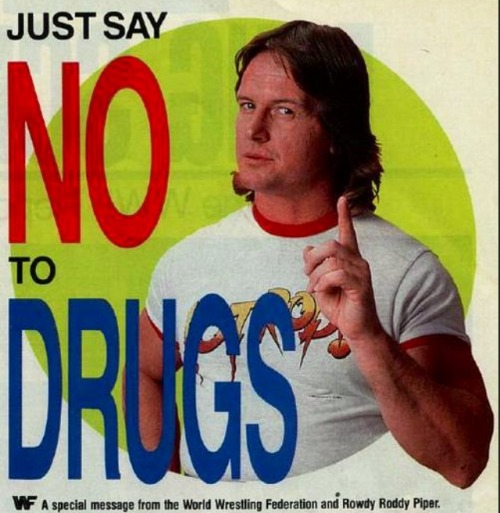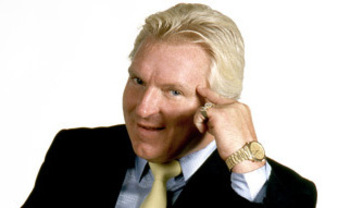In a move that may change the future of the sport of wrestling more than anything in modern history, the International Olympic Committee on 2/12 voted to eliminate the sport from the summer Olympics.
Because of a decision to add Golf and Rugby to the Olympics, the IOC had a meeting to decide a sport to be dropped, because they wanted to keep the number of sports, now 25, to be no more than 26. There was no reason for this magic number, other than it was a number decide upon.
Voting was conducted by a secret ballot over several rounds of voting. The four sports that were on the ballot at the end were wrestling, taekwondo, modern pentathlon and field hockey. Two other sports were also the day before in danger of getting the ax, badminton and table tennis.
While the news wrestling was under consideration to be dropped was a scare to those in wrestling, given its history, dating back to the first modern Olympics in 1896, and worldwide participation, the feeling was strong that it was on a dangerous list, but it wasn’t going to be dropped.
In the end, the decision came down to wrestling and Modern Pentathlon. Modern pentathlon, one of the oldest Olympic sports, dating back to 1912, was created by French baron Pierre de Coubertin, who founded the modern Olympic movement. It is like a decathlon in track, in the sense it combines several different competitions with scores in each being added up. The pentathlon consists of fencing, horse riding, swimming, running and shooting. What may have saved the sport is that work of Juan Antonio Samaranch Jr., the son of an Olympic administrative icon who was the IOC President for decades.
“It’s just stunning to me,” said Houston Mitchell of the Los Angeles Times, who covered the decision. “There is no logical rationale, based on their criteria in the past, for dropping wrestling. It has worldwide appeal. No one country dominates it. Wrestlers from 71 countries competed in wrestling in London and FILA, its international governing body, lists 180 member nations. At the last Olympics, 29 different countries medaled.
In comparison, athletes from 26 countries competed in modern pentathlon. And modern pentathlon is a sport developed because it used the same skills a 19th century cavalry officer used. I don’t mean to pick on modern pentathlon, especially with a sport like synchronized swimming still in the Olympics, but this is just a ridiculous decision.”
The problem, apparently, is that those 29 nations that won medals were not well represented on the IOC board.
The decision was made by a vote from the IOC’s Executive Board. According to those close to the situation, there were 14 voters. They came one each from Belgium, Singapore, Morocco, Great Britain, Australia, South Africa, Sweden, Taipei, Switzerland, Ireland, Spain, Ukraine and Guatemala, plus two from Germany. Of those countries, only Ukraine is any kind of a modern wrestling threat.
South Korean president-elect Park Geun Hye pushed the IOC to keep taekwondo. Field Hockey was saved by nationalism, as Germany, Spain, Australia, and the U.K. have all won recent medals, a list that better matches the home country of the key board members.
The voters were very close early on, but the final vote, according to the Canadian Post sources (the balloting was secretive) was eight voted to eliminate wrestling, three voted for modern pentathlon and the other three voted for field hockey when it was narrowed down.
FILA, the governing body of wrestling, didn’t push as hard, or as effectively, as UNIM, the governing body of the modern pentathlon, or those of the other sports involved in the elimination voting.
Bill Dwyre, the former sports editor of the Los Angeles Times, and an expert on the Olympics, noted that the decision was made, inexplicably without any input from NBC, which carries the games and would have likely favored keeping wrestling above the pentathlon.
As things stand right now, wrestling, consisting of freestyle, Greco-Roman and women’s freestyle (which was introduced in 2004), will be part of the 2016 Olympics in Rio de Janeiro as a lame duck sport.
There is a slim chance wrestling wouldn’t be dead as an Olympic sport, largely based on public pressure from enough places, because there is certain to be a strong movement in several countries regarding this decision. But the IOC is notoriously stubborn about its decisions, and not reversing them. The plan is to add a new sport in 2020, a decision expected to be made between 9/7 and 9/10 when the IOC meets in Buenos Aries, Argentina.
The sports that will be vying for the last spot are wrestling, baseball/softball (voted out in 2005 after a short run, last competed for in the 2008 games), karate, squash, roller sports, sports climbing, wakeboarding and wushu (a Chinese martial art that combines kickboxing and grappling techniques but also involves demonstration techniques of flashy spinning kicks as opposed to only combat).
Few sports have the international historical tradition of wrestling, whose backers claim wrestling and foot races to be the oldest sports in existence. Wrestling dates back to the original Olympics in 776 B.C. and about 240 years later, the famed Milo of Croton won five straight Olympic gold medals over a 24 year period before he was beaten in 516 B.C. in his attempt to win his sixth. So that places him with modern sports legends Alexander Karelin, the 286-pound Russian Greco-Roman specialist who was the most dominant Olympic wrestler of all-time. The idea that the sport of Karelin, and his predecessor as the all-time freestyle best, Alexander Medved, as well as current stars and Japanese women’s national heroes like Saori Yoshida and Kaoru Icho, have their sport dropped is hard to believe.
The decision was made based on a confidential report that looked at more than three dozen criteria for keeping a sport in the Olympics, including television ratings, ticket sales, anti-doping policy, global participation and overall popularity. Due to television ratings, sports like wrestling and boxing, that don’t have a lot of appeal to women, have had their amount of television coverage cut way back since the 70s and 80s when people like Dan Gable and Jeff Blatnick’s Olympic gold medals were major national stories. But even as late as 2000, Rulon Gardner’s win over Karelin was probably the most heavily covered wrestling match in modern U.S. Olympic history and a major part of Olympic sports history. In addition, in London, every wrestling session sold out.
Kurt Angle felt the timing was horrible, thinking the U.S. was headed for a comeback like their glory period in the 70s and 80s, when Dan Gable, Ben Peterson, Wayne Welles, John Peterson, Ed Banach, Lou Banach, Bruce Baumgartner, Randy Lewis, David Schultz, Mark Schultz, Bobby Weaver, Jeff Blatnick, Steve Fraser and Kenny Monday all captured gold medals. He said the wrestler ushering in the comeback was Jordan Burroughs, the world’s most dominant wrestler, who won a gold medal at 165 pounds in London and is going for a repeat in Rio de Janeiro in 2016.
The IOC is also in September going to announce the host city for the 2020 Olympic games. What could be a saving grace is if Tokyo gets the Olympics, because as soon as the news hit, those in Japan immediately starting pushing to bring it back. Japan has had a number of high profile male Olympic wrestlers who became pro wrestling superstars like Jumbo Tsuruta and Riki Choshu, two of the country’s all-time pro wrestling greats, along with Masa Saito, Yoshiaki Yatsu and Hiroshi Hase, who were all top-level stars. Japan is also the dominant country for women’s wrestling. Besides Yoshida and Icho, Kyoko Hamaguchi, the son of pro wrestler Animal Hamaguchi, appeared in a number of major television commercials and was one of the country’s most popular Olympic athletes, even being named flag bearer for Japan at the 2004 Olympic opening ceremonies.
However, Tokyo is considered a longshot for the 2020 games, because of what is perceived to be a lack of public support. The favorite host city at this point appears to be Istanbul.
“I believe if we fight hard enough, the replacement sport for wrestling will be wrestling,” said Angle, who noted the first thing he woke up to on 2/12 was the news and he didn’t believe it. “If Japan gets the bid, they’re going to demand wrestling be put back. With the IOC, I hope that doesn’t mean they’ll say, `We’re not going to pick you.’ I don’t know if that’s going to be the determining factor. I hope Japan gets it.”
If Olympic wrestling goes away, a lot of its legacy, from Gable to Karelin to Baumgartner to David Schultz, and its history, are likely to be forgotten.
“You can’t just forget the names, I hope to God this doesn’t happen, but those names will virtually be forgotten if there is no wrestling,” said Angle. “In the U.S., we have our own form of wrestling (high school and collegiate folkstyle wrestling). It won’t die here. But I can’t imagine what other countries are feeling that don’t have a lot of other sports, like Iran, Turkey, in the opening ceremonies, they may have 18 people, and they field a wrestling team. We have 700. Look at the Russians. This is their sport. They dominated for 50 of the last 75 years. How hard are they going to fight? USA Wrestling is going to fight. We need other countries to step up.”
This will hurt an aspect of the legacy of wrestling, in the sense the world championships get very little publicity in the U.S., so stories about winning and losing, close matches and upsets, will be known by very few. The Olympic wins by Gardner, Blatnick and Gable, as well as the Olympic losses by Danny Hodge and Chris Taylor are part of wrestling and Olympic history, with moves like Wilfried Dietrich German suplex on Taylor in 1972 and Karelin’s gut wrenches in 1988 and 1992 immortalized in posters all over the world.
“We were considered weak in some of the scores in the program commission report but strong in others,” said Samaranch Jr. to the AP about saving the modern pentathlon. “We played our cards to the best of our ability and stressed the positives. Tradition is one of our strongest assets, but we are also a multi-sport discipline that produces very complete people.”
FILA, the international governing body for the sport of wrestling, released a statement saying, “FILA will take all necessary measures to convince the IOC Executive Board and IOC members of the aberration of such a decision against one of the founding sports of the ancient and modern Olympic games.”
“It might just awaken a sleeping giant here,” said Cael Sanderson, America’s top wrestler of the last decade. “It’s sickening really. It makes me sick to think about it.”
Most likely, the quality and caliber of post-collegiate wrestling in the U.S. will go down drastically after the 2016 Olympics. Even though there are wrestlers, Angle noting he’d have been one of them, who would have continued in their sport with the same drive to world a championship, things would be different. The entire elite level wrestling program in the U.S. is supported by the Olympic Committee, which pays the coaching staff and houses the top wrestlers in Colorado Springs. When it is no longer an Olympic sport, that dies. There will still be some major wrestling clubs, but the coaching won’t be as good and the caliber of top athletes all training together in one facility won’t be there. The number of elite competitors will drop. More will likely enter MMA earlier and a few will enter pro wrestling earlier. Others won’t get the shot at pro wrestling because anyone 185 pounds or more with an Olympic wrestling medal in anyone of a number of countries that WWE runs with the right look will be scouted by Gerald Brisco. Without that Olympic visibility, or a gold medal, many, even in the U.S., could fall under the radar. Similarly, with no Olympics, the type of Greco-Roman talent that historically has done well in MMA, like a Randy Couture, Dan Henderson or Matt Lindland, is likely to have their wrestling career end after college, and not specialize in the Greco that played a big part in their MMA success.
Olympic wrestling has spawned some of the biggest names in both pro wrestling and MMA history. Some, like Angle, were recruited into pro wrestling after winning Olympic gold medals, that without it, would not have likely ever moved into that world. Others, like Couture and Dan Severn in MMA, never actually competed in the Olympics, but it was the drive to make an Olympic team that kept them learning more and improving their skill level in wrestling when they otherwise would have moved on to a coaching job or a regular job.
Other names who became pro wrestlers including Baron Von Raschke, Jun Akiyama, Kazuyuki Fujita, Kazushi Sakuraba and Minoru Suzuki were Olympic wrestling hopefuls whose drive for the Olympics, even though they failed to make the team, opened up doors and gave them that allowed them to get into pro wrestling, and eventually be players in the genre.
A number of Hall of Famers in pro wrestling were on various Olympic teams including Angle, Verne Gagne, Danny Hodge, Tsuruta, Choshu, Mad Dog Vachon, Karl Gotch, Earl McCready, Ed Don George, Saito and Hase.
John DaSilva, the biggest native pro wrestling star in New Zealand, and Henri DeGlane, the biggest star in the heyday of pro wrestling in France (as well as the first major pro wrestling drawing card in Montreal) also came from the Olympics.
Other genuine stars that came out of the Olympics included former NWA world champion Dick Hutton, Dale Lewis, Thunder Sugiyama and Bob Roop.
MMA top stars who came out of Olympic wrestling, besides Couture and Severn, who were alternates, included Bellator champion Ben Askren, UFC Hall of Famer Mark Coleman, as well as current UFC fighters Daniel Cormier, Dan Henderson, Sara McMann and Yoel Romero.
It’s hard to ascertain what this will mean overall when it comes to the sport of wrestling, although the high school and college programs in the U.S. probably won’t be affected greatly, but the NCAA tournament would be the pinnacle and the end for the majority of the elite level wrestlers, as opposed to moving on to international competition. Angle noted it will also hurt “late bloomers,” guys who may have been good college wrestlers, but never won an NCAA title, who later fared better on the international stage. Couture, Daniel Cormier and King Mo Lawal all placed in the NCAA tournament, but never won, but won national titles and competed at the world level far more successfully than most NCAA champions.
College wrestling has declined greatly in recent years as far as schools fielding times due to Title IX and the fact the sport is rarely self-sufficient financially. High school wrestling is still popular, actually on the upswing. Some credit that to MMA, which is likely to be more of a positive when it comes to kids wanting to wrestle in high school than the loss of wrestling in the Olympics would be a negative.
Wrestling Observer on the Olympic wrestling ouster
Moderator: Dux
-
T200
Topic author - Sergeant Commanding
- Posts: 5434
- Joined: Mon Sep 15, 2008 1:38 am
- Location: House of Fire
Wrestling Observer on the Olympic wrestling ouster





